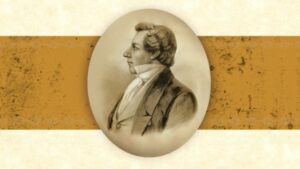Our obsession with celebrities strikes me as odd. We crave every detail of Britney’s quirks, Kanye’s rants, Meghan’s discontents, and the Kardashians’ craziness. Why are we obsessed with celebrities? Do we enjoy seeing famous people act even crazier than we do? Is there a part of us that envies their fame, their wealth, their influence? Does following their adventures and antics relieve a sense of boredom we might have with our own more mundane lives? Do we fret (or relish) that they are a barometer for our own national well-being? When searching for heroes, do we look to celebrities in the news or on social media?
Celebrity may be one of the biggest enemies to goodness. The first article of faith for celebrity is that we must be filthy rich and regularly in the news. That’s the good life.
The prominent irony is that many celebrities don’t seem to be enjoying themselves. The plain among us seem to have more peace and satisfaction than many of the stars. Which of us wants the life–and death–of Elvis? Or Marilyn Monroe? Or Kurt Cobain? Do we really believe that we could live the lives that they lived and somehow dodge the landmines of celebrity? What is the lure of their lives?
I fear that celebrity is so attractive because we have failed to understand and to teach the riches of the simple life.
Alternative heroes
What happened to quiet, steady goodness? How did we lose simple love, joy, and peace as the measuring sticks of the good life?
Nancy and I used to take our children and visit her grandparents regularly. So, our children heard their great grandpa talk about herding sheep. The saw the little carts he made for the widow ladies so they could haul their trash cans to curbside. They heard their grandpa recite the poems he wrote. They witnessed their grandma quietly care for family and neighbors. I hope our children today feel more attraction to the lives of Les and Stella than those of Britney and Kanye.
My wife has an extraordinary amount of compassion for people. When our daughter Emily expressed concern about a shunned classmate in first grade, Nancy helped her make a plan to serve him. They made cookies and went to visit the boy at home. Emily played with the classmate while Nancy visited with his mother. The mother was touched by the thoughtfulness. The boy was blessed by the act of compassion. That experience along with others helped to form our daughter’s lifelong desire to touch lives.
On one occasion we invited a radiant couple in our community over to our home for dinner. We invited them to share with us and our children stories of their lives. They were too modest to tell about the many ways they had made our community a better place. But their kindness, humor, and warmth left a lasting impression on all of us.
Parents, grandparents, and neighbors can be local heroes as they quietly serve and love. They can be–and should be–the people from whom our children learn the vital lessons about goodness, service, and the good life. Rather than having our children focus upon celebrity fame and antics, we can point them to the lives of these local heroes.
Bringing the famous home
There is still more we can do to teach our children about real heroism. When our children were small, we were reading Bible stories together every morning before breakfast. We told the stories in our own words and supported them with colorful illustrations. We read for several weeks about Moses and his leadership of the children of Israel. The Israelites complained and grumbled. But Moses continued to invite the people toward the promised land. One particular morning we read about Moses leaving his people never to be with them again in mortality. Then we dove into breakfast. In the middle of breakfast, I turned to find that Andy was weeping. I was surprised. I asked, “Andy, what’s wrong”? He said, “Dad…” and I thought his little heart would break with sobbing, “…I’m going to miss Moses!”
I’m still amazed by the lesson I learned that morning. We can bring any person who ever lived to our breakfast tables. We can be taught by King Benjamin. We can be enriched by Abraham Lincoln. We can be inspired by the Lord Jesus Christ. All are available. Each will come gladly. All we must do is prepare for them by filling ourselves with appreciation for them and telling their stories with heartfelt love.
They learn what we live
How do we help our children envision and experience the good life? We can’t teach children the rewards of service through a lecture. Instead, we can engage in opportunities to serve as a family and allow them to experience those rewards. We cannot teach compassion if they are watching us berate or gossip about others around the dinner table. Instead, we can model compassion and then encourage them towards compassion as they bring their issues with others to us. We can create family discussions about local heroes—those who are quietly doing good and making a difference within their own circle of care.
But how can we balance our children’s view of the celebrities? Should we try to dethrone celebrities from our children’s lives? Should we underscore the foibles and foolishness of the famous? No. We should show the same compassion and charity for them that we show for our neighbors whose lives are in turmoil. We should speak of them with charity.
We should then have open conversations about what makes for a truly satisfying life. We should acknowledge to ourselves and our children that there is a difference between our culture’s obsession with celebrity and how God views worth. Our culture admires fame and those who compete to display the latest in fashion and material possessions. God honors humility and gratitude. Our culture labels “influencers” based upon high numbers of followers or “likes” on social media. God esteems our influence based upon our willingness to offer kindness, comfort, and service to the one—unto “the least of these.” We teach our children to look to real heroes—those who quietly serve, love, and bless, thereby achieving “the good life.”
To paraphrase a vital observation, “Civilization is a stream with banks. The stream is sometimes filled with stories of those who are famous, wealthy, or evil—those who are killing, stealing, shouting, jetting off to private islands in expensive clothes, or attending the biggest parties, and doing things that the news usually records; while on the banks, unnoticed, people build homes, raise children, engage in acts of kindness towards their neighbors, worship God, sing songs, write poetry… The story of civilization is the story of what happened on the banks.” (Paraphrased from Will & Ariel Durant, The Story of Civilization)
Invitation
There is no better gift to give your family for the new year than greater love and closeness! Consider sharing a book on parenting, marriage, or happiness by Wally Goddard. My newest book—covering key breakthroughs in all three areas—is Discoveries: Essential Truths for Relationships. To find a suitable book, go to https://www.amazon.com/H-Wallace-Goddard/e/B001H6ND5A/ref=dp_byline_cont_pop_book_1
Thanks to Barbara Keil for her insightful additions to this article.



















